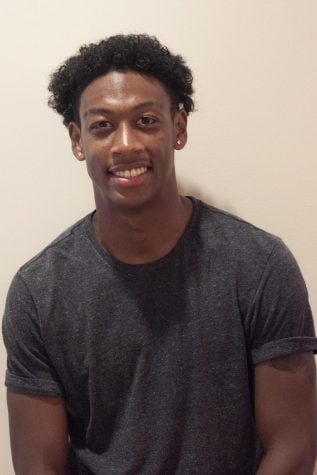Three weeks into Donald Trump’s presidency, campaign promises are quickly and controversially becoming policy.
The most recent action was an executive order calling for a temporary travel ban on individuals coming to the U.S. from seven countries — Syria, Iran, Iraq, Libya, Sudan, Yemen, and Somalia — and preventing any refugee awaiting resettlement in the country from entering for 120 days. In addition, Syrian refugees were barred indefinitely and green card holders were let in the country on a case-by-case basis.
Before the order faced legal challenges halting its enforcement, over 100,000 green cards were revoked and many people were denied entry to the country when their planes touched down.
“I was surprised that (Trump) did it so quickly,” said Diya Abdo, chair of the English Department and founder of the initiative Every Campus a Refuge. “It shocked me.”
Along with other White House officials, Trump has avoided the rhetoric of a “Muslim ban” despite Islam being widely practiced in the seven countries targeted in the order.
“It’s not based on religion,” said former New York City Mayor Rudy Giuliani to Fox News. “It’s based on places where there are substantial evidence that people are sending terrorists into our country.”
However, many believe that the travel ban is a discriminatory act. Trump’s administration received strong scrutiny from citizens and officials who opposed to the ban and foresaw negative effects.
Nebraska Sen. Ben Sasse called the travel ban “too broad,” saying that it risks playing into the hands of jihadist groups that portray the U.S. as anti-Muslim. New Hampshire Sen. Jeanne Shaheen had a similarly negative take.
“This executive order is Un-American & grossly inhumane,” she tweeted. “We are a nation of immigrants that should remain welcoming to all nations & faiths.”
Sophomore Mahmoud Henderson, who is from Saudi Arabia and is Muslim, commented on the order.
“I do feel like it’s a ban that is targeting Muslims,” said Henderson. “I do have friends who have been stopped in an airport and questioned to a degree that was beyond normal and held up for a decent period of time.
“It causes fear, you feel like you will be stopped or questioned just because of religious practices.”
James Robart, a federal judge appointed by former President George W. Bush in 2004, temporarily blocked the travel ban in a hearing on Feb. 3.
In the meantime, protests broke out across the country and world in response to the travel ban, many at major airports where individuals were held under the order. Across the Atlantic, a march was held in central London with thousands of individuals taking to the streets against the travel ban.
Abdo believes it is time for campuses and cities to step up against the action which has been argued to promote discrimination against Muslims and refugees within and outside the U.S.
“We need to figure out how to disarm this bigotry and hate in ways that are legal and effective,” said Abdo. “Private institutions, like Guilford, have control over own resources. This is something that campuses and cities can still do; because the ban is suspended, refugees will still be admitted. There’s room for campuses to host refugees and support refugees and support the ones who already here.”













